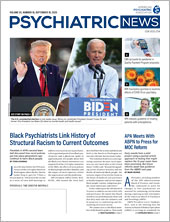To be fair, I already disliked my therapist. As a psychiatry resident, I was strongly encouraged to undergo my own psychotherapy. This particular therapist came highly recommended, but I found his manner cold and removed. I worried that he could not empathize with my struggles to become pregnant. I resented his vagueness about his no-show and billing policies. I could forgive him for these demographic and stylistic differences, but he drove the nail into the coffin of our work together when I cried to him about climate change and he said nothing.
During Obama’s presidency, although climate change registered for me as a serious threat, I had naïve confidence in our government’s efforts to address it. The Paris Climate Accord felt historic. As with many of my fellow Democrats, the election of Donald Trump stunned me into a rude awakening. Not only would we no longer make incremental progress, I correctly guessed that we would now take steps backward with the rollback of environmental policies and reduced funding and incentives for green technology. I expected that life on our planet would suffer tremendously under Trump’s administration.
Watching the election results on TV felt like a bizarre nightmare. Several days later, I sobbed in my therapist’s office, overcome with despair, perhaps expressing real vulnerability to him for the first time. I worried about my own future and that of my future child. I worried about the fate of the coastal redwood forests that had defined my childhood. How long would they survive as California suffered longer and hotter periods of drought? I thought of the families most affected and the people who had contributed least to the problem and whose towns had been burned to the ground, washed away, or would become uninhabitable. I cried for my own isolation—I felt more anxious with each unseasonably warm day and no one close to me understood my distress.
In my memory of this event, my therapist remained silent, continuing to gaze at me in his typical aloof and quizzical manner. Given his psychoanalytic background, which emphasizes the therapist as a blank slate, I will never know if he remained mute because he did not understand my eco-anxiety or because silence is what his training required of him. As someone for whom the issue of climate change was real and terrifying, I felt abandoned, as if I had told him a family member had passed, and he failed to acknowledge it.
Needless to say, I switched to a therapist with a warmer, more approachable style. While I did connect with my new therapist and grew very attached to her as she guided me through my first pregnancy, I did not bring up climate change again in any meaningful way. I discussed plenty of other worries, most prominently the fear that my fetus could have been harmed by a brief exposure to environmental toxins, which in retrospect seems like an apt metaphor for my real concerns about our contaminated planet.
Not long after my son was born, I joined the climate movement, as many Americans have over the last couple of years. I marched in the streets, phoned my representatives, protested outside government offices, donated money to environmental causes, and talked to my friends and family about the cause. These small actions allowed me to get through each day with optimism.
I graduated residency and entered fellowship for the last stage of my training, specializing in mental health care for children and adolescents. One day, an intelligent, suicidal teenage boy sat in my office. I asked him what kinds of things worried him. He looked sheepishly at me and answered, “Fights with my family, and, you know, climate change.” I stared at him silently, simultaneously stunned and impressed and grateful. “Yes, it’s scary,” I finally managed, “Tell me more.” ■

